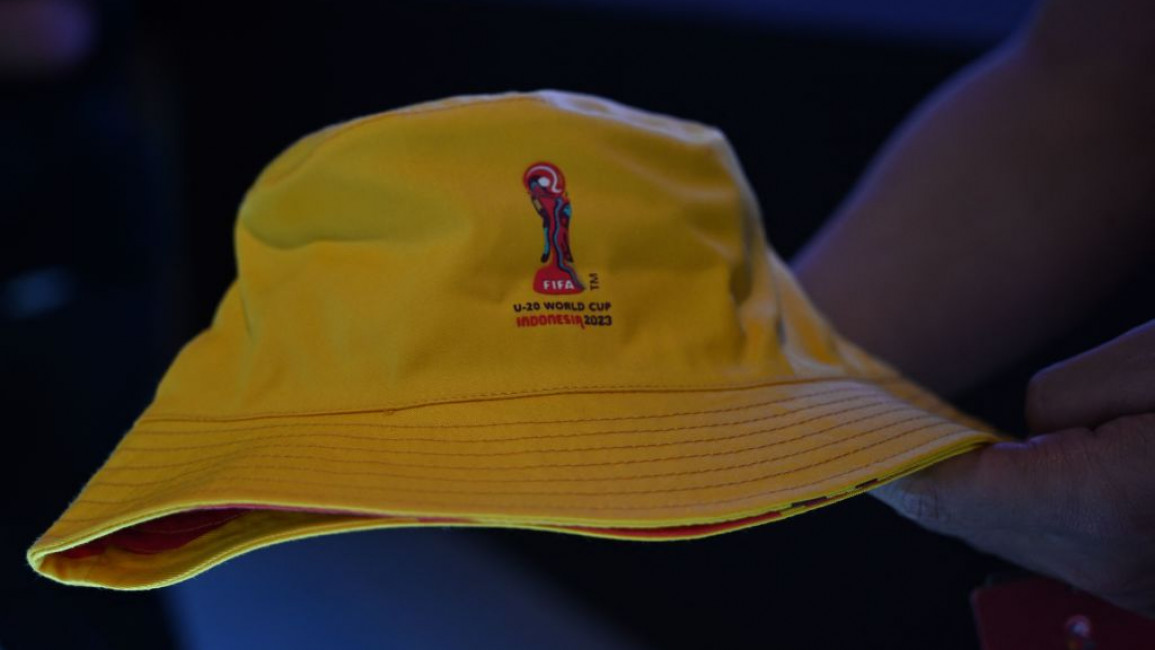Outrage in Indonesia after FIFA pulls Under-20 World Cup over anti-Israel protests
Indonesian football players, fans and pundits reacted with anger and sadness Thursday after FIFA pulled the Under-20 World Cup from the host nation weeks before it was due to kick off, following protests against Israel's participation.
The loss came after two influential governors advocated banning Israel from the competition.
Indonesia and Israel do not have formal diplomatic relations, and support for the Palestinian cause in the world's most populous Muslim-majority nation runs high, leading to strong opposition to hosting the Israeli team.
FIFA's decision to find a new host - thereby nixing Indonesia's automatic qualifying spot - puts the country's most popular sport back in the doldrums and facing another bout of isolation as it recovers from a stadium stampede that killed 135 people last year.
Some of the archipelago nation's football prodigies took to social media with fury and heartbreak after losing the chance to play at what FIFA bills as the "tournament of tomorrow's superstars".
"Energy, time, sweat, and even blood we have put in, but in a moment failed because of political reasons. Here's our big dream that you've destroyed," wrote 19-year-old striker Rabbani Tasnim.
An Indonesian FA video showed players with heads bowed and their coach in tears after receiving the news late Wednesday that FIFA would seek a new host.
"We, the players, are now affected, not just us but all footballers," said 18-year-old striker Hokky Caraka.
Head coach Shin Tae Yong said he was "heartbroken" and "tired" after preparing the team for more than three years for the youth football showpiece.
On Thursday morning, flower boards for the players popped up outside the FA headquarters in central Jakarta, including one that read "do not give up on your dream".
Indonesians inundated the Instagram page of Central Java governor Ganjar Pranowo - one of the leading candidates in next year's presidential election - with negative comments after he opposed Israel's participation.
Bali governor Wayan Koster had also joined the anti-Israel chorus and around a hundred conservative Muslim protesters held an anti-Israel rally in Jakarta this month.
Koster on Thursday cited the occupation of Palestinian lands and "threat and security" concerns for rejecting Israel's participation, comparing his call for a ban to Russia's exile from the 2022 World Cup in Qatar.
The Democratic Party of Struggle, the powerful nationalist ruling party of President Joko Widodo and Koster, in a statement expressed regret about the decision but said it had sought for Israel to play its games in "the nearest neighbouring country".
But there was popular support for the tournament - which the country was handed in 2019 - with many viewing it as a source of national pride.
Jakarta pledged to guarantee Israel's participation despite its pro-Palestinian stance, but opposing voices became too loud for FIFA.
"This is truly a very painful incident for the Indonesian people. Those who made the noise and made us fail... must be held accountable," said Akmal Marhali, an expert at football watchdog Save Our Soccer.
Indonesian officials said losing the tournament could cost the country hundreds of millions of dollars.
FIFA threatened further sanctions and could exclude Indonesia from 2026 World Cup qualifiers that begin in October. It was banned for a year in 2015 over government interference.
But for Indonesia's fervent fans, it was the loss of their first ever major football tournament that hurt the most.
"I am very disappointed because it has been my dream to watch Indonesia hosting a global football event," said 40-year-old supporter Jarnawi, who like many Indonesians goes by one name.
The game in the country has long been dogged by shaky infrastructure and fan violence.
But it was the clash of politics and sport that ultimately cost it the tournament many had long hoped for.
"We are talking about youths who want to play soccer. They do not have any more interests," said pundit Justin Lhaksana.
"Why is this issue blindly mixed with political games?"



